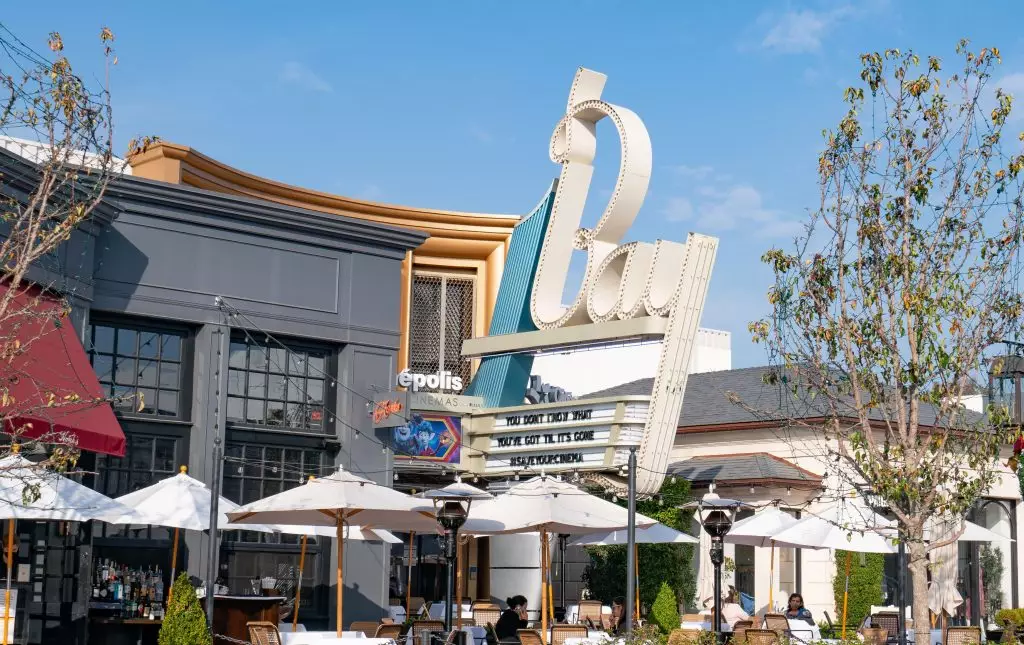The Pacific Palisades wildfire has struck a significant blow to the entertainment industry in Los Angeles, the leading hub for cinema in the United States. With a landscape heavily dotted with theaters, approximately ten cinemas have ceased operations due to safety concerns stemming from the encroaching flames. Notable casualties include well-frequented venues such as the AMC Americana in Glendale and the Regal Sherman Oaks. The closures have left cinephiles in the area searching for alternate sources for their film fix, as the shutdowns have occurred suddenly, with many venues announcing indefinite closures and no set reopening dates.
The suddenness of these closures raises pressing issues regarding how closely the cinema industry is intertwined with local community sentiments and how natural disasters can disrupt cultural touchstones like movie theaters. Cinemas often serve as community hubs, shaping social engagement and offering entertainment amid distressing circumstances.
Protection amid the Flames
At the heart of the fire’s fury stands the historic Bay Theater, a notable landmark owned by Rick Caruso, a prominent local real estate developer and mayoral contender. The theater’s relationship with Netflix, which books and operates the venue, adds an interesting corporate dynamic to the situation. Although the Bay Theater has temporarily closed, early reports indicate that the structure itself was spared from the devastation of the flames, a small relief in the face of widespread destruction.
In an interview with the Los Angeles Times, Caruso revealed that the shopping center housing the Bay Theater suffered severe damage, painting a grim picture of the area now engulfed in flames. The intertwining of local governance, community needs, and corporate interests will be worth following, particularly as recovery begins and accessibility to special venues like the Bay Theater remains uncertain.
Impact on Box Office Revenues
As the immediate impacts of the wildfire unfold, the broader implications for box office revenues in Los Angeles are also in flux. Market analysts predict significant declines in attendance, exacerbated by ongoing evacuation orders and advisories discouraging road travel. Although a passionate local fanbase fuels the L.A. cinema scene, the immediate community’s response to natural disasters can rarely be underestimated. With revenue projections suggesting grim forecasts for the weekend, the market, which previously garnered over $681 million last year, faces an uphill battle to recapture its momentum.
Furthermore, the potential box office performance of new releases dives into uncertainty. One such film is Lionsgate’s “Den of Thieves 2: Pantera,” projected to open with modest earnings amid fierce competition with holiday holdovers such as “Sonic the Hedgehog 3” and “Mufasa.” These challenges raise questions about how promotional efforts and audience engagement strategies will adapt in a volatile atmosphere.
In light of the wildfire, various industry events have met cancellations or postponements, including several high-profile premieres and the Critics Choice Awards. Originally set to take place in the coming days, major events are falling victim to scheduling shifts that stem from security concerns. Such disruptions highlight the fragility that can accompany the glitz and glamour that Hollywood typically embodies. The impact of these cancellations emphasizes a significant shift from entertainment to crisis management amidst public safety concerns.
The canceled premieres for upcoming films signal a larger issue regarding the film cycle and marketing schedules. With significant events like the Critics Choice Awards pushed to January, industry participants must navigate the precarious balance between honoring scheduled programs and the stark realities brought forth by natural disasters.
The Pacific Palisades wildfire has thrown the Los Angeles cinema landscape into a state of uncertainty that mirrors the disarray wrought by the flames themselves. Community engagement, box office projections, and the industry’s event calendar all face repercussions as stakeholders grapple with the aftermath of this crisis. Moving forward, it will be essential to observe how cinemas navigate their reopenings and how the broader cultural landscape adjusts to preserve the cinematic experience for both audiences and filmmakers alike. The resilience of the industry will ultimately depend on its ability to adapt and foster community spirit during these turbulent times.


Leave a Reply